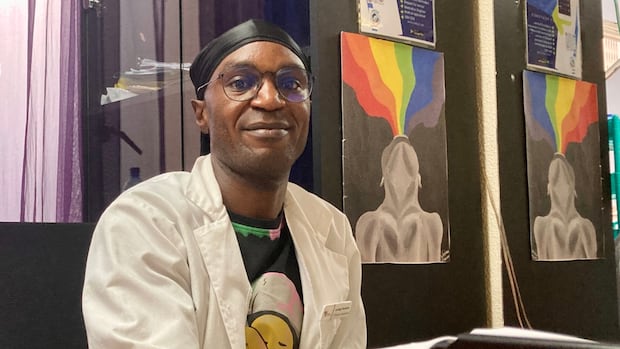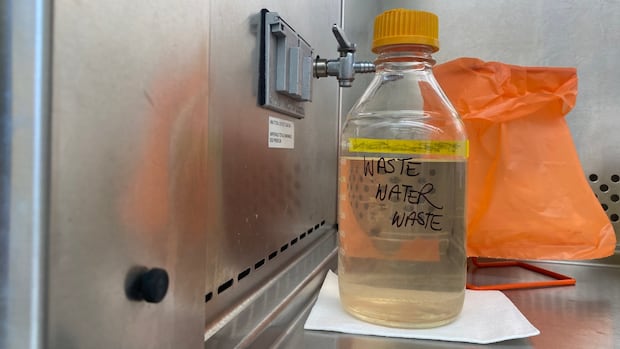The Trump administration’s new vaccine advisers on Thursday endorsed this fall’s flu vaccinations for just about every American — but only if they use certain shots free of a preservative that has been safely used in vaccines for decades.
What is normally a routine step in preparing for the upcoming flu season drew intense scrutiny after U.S. Health Secretary Robert F. Kennedy Jr. abruptly fired the influential 17-member Advisory Committee on Immunization Practices (ACIP)and handpicked replacements that include several vaccine skeptics.
The seven-member panel bucked another norm Thursday as it discussed the safety of a preservative used in less than five per cent of U.S. flu vaccinations: It deliberated based only on a presentation from an anti-vaccine group’s former leader — without allowing the usual public airing of scientific data from the U.S. Centers for Disease Control and Prevention.
The preservative, thimerosal, has been used for decades in certain vaccines that come in multi-dose vials, to prevent contamination as each dose is withdrawn. Its controversy stems from containing a small amount of a particular type of mercury. However, the CDC’s own data shows it is safe, and on Friday the World Health Organization stated in a press briefing that there was no evidence of risk.
“Thimerosal has been reviewed multiple times by multiple agencies, including WHO, and it’s clear from the evidence that there is no evidence of harm from the use of thimerosal,” Dr. Katherine O’Brien from WHO told reporters in reaction to the U.S. panel decision.
Thimerosal contains a minute amount of ethyl mercury, which breaks down quickly in the body and is swiftly removed, unlike methyl mercury, the type of mercury found in the environment which can build up in the body and cause harm. In Canada, a handful of multi-dose influenza vaccines approved for use by Health Canada contain thimerosal, but the vast majority of routine childhood vaccines do not.
Single-dose flu shots unaffected
Study after study has found no evidence that thimerosal causes autism, a myth long pushed by anti-vaccine groups, or poses any safety risks. Yet since 2001, all vaccines routinely used for U.S. children age 6 years or younger have already come in thimerosal-free formulas.
The advisory panel voted to back the usual U.S. recommendation that nearly everyone age six months and older get an annual flu vaccination, but then voted 5-1 with one abstention that these had to be thimerosal-free formulations.
This would include single-dose shots that already are the most common type of flu vaccination, and would rule out the subset of flu vaccine dispensed in multi-dose vials.
“There is still no demonstrable evidence of harm,” one panelist, Dr. Joseph Hibbeln, a psychiatrist formerly with the National Institutes of Health, said in acknowledging the committee wasn’t following its usual practice of acting on evidence.
But he argued that “we have to respect the fear of mercury” that he said might dissuade some people from getting vaccinated.
Panel blocked CDC’s analysis
Lyn Redwood, formerly of the Kennedy-founded anti-vaccine group Children’s Health Defense, gave the presentation on thimerosal in front of the panel, arguing that it was a neurotoxin.
The version of Redwood’s presentation posted to the CDC’s website earlier this week initially included a reference to a study that does not exist. The report she gave to the committee was significantly shorter, removing a reference to that study and another slide saying she did not have any conflicts of interest.

“With the vote on thimerosal this afternoon, the new committee has turned the ACIP process into a farce,” said former CDC vaccine adviser Dr. Fiona Havers, who resigned last week over Kennedy’s changes to vaccine policy.
Medical groups decried the panel’s lack of transparency in blocking a CDC analysis of thimerosal that concluded there was no link between the preservative and neurodevelopmental disorders, including autism. The data had been posted on the committee’s website Tuesday, but was later removed — because, according to ACIP member Dr. Robert Malone, the report hadn’t been authorized by Kennedy’s office. Panel members said they had read it.
The ACIP helps the CDC determine who should be vaccinated against a long list of diseases, and when, and its recommendations have a big impact on availability and insurance coverage of vaccines in the U.S.
Normally the CDC’s director would decide whether to accept ACIP’s recommendation, but the Senate has not yet confirmed nominee Susan Monarez. Administration officials said Kennedy would make that decision.
While Thursday’s debate involved only a small fraction of flu vaccines, some public health experts contend the discussion unnecessarily raised doubt about vaccine safety. Already, fewer than half of Americans get their yearly flu vaccinations, and mistrust in vaccines overall is growing.
“Selective use of data and omission of established science undermines public trust and fuels misinformation,” said Dr. Sean O’Leary of the American Academy of Pediatrics (AAP). He said of the new panelists, “Nothing about their recent actions have been science-based or transparent.”
A new study published in the Lancet medical journal suggests childhood vaccinations have stagnated or declined since 2010. The authors say geopolitical instability is fuelling the drop in some countries, but misinformation is largely driving the decline in high-income countries.
The pediatrics group announced Wednesday that it would no longer be participating in the ACIP meetings, with president Sue Kressly saying in a video statement that “with the committee dismissals, it is no longer a credible process.” The AAP will continue publishing its own vaccination recommendations.
The flu votes marked the final step of a two-day meeting that alarmed pediatricians and other doctors’ groups, who pointed to new panelists’ lack of expertise in how to properly track vaccine safety — and a shift in focus which appears to boost anti-vaccine messaging.
Of special concern was the announcement by panel chairman Martin Kulldorff to reevaluate the “cumulative effect” of the children’s vaccine schedule — the list of immunizations given at different times throughout childhood. That reflects the scientifically debunked notion that children today get too many vaccinations for their immune systems.








